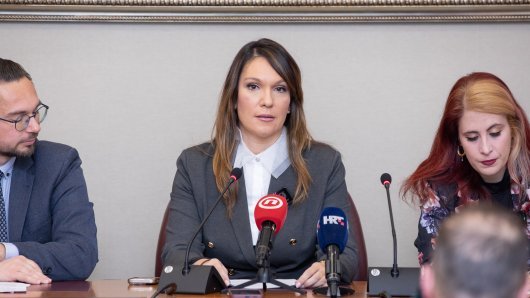The ratification of Croatia's European Union accession treaty will most probably be part of a coalition agreement between the parties that Slovenian Prime Minister Designate Alenka Bratusek plans to include in Slovenia's new government.
A draft coalition agreement between the four parties envisages the obligation to support the ratification in parliament, STA news agency reported on Thursday after Bratusek's talks with the Democratic Party of Pensioners (DESUS).
Bratusek is the president of the Positive Slovenia party and is discussing the formation of a new government with DESUS, the Social Democrats, and the Civil List. The talks are nearing completion and the parties could sign a coalition agreement next week so that Bratusek can submit a list of her future ministers to parliament by Thursday's deadline.
On Monday, outgoing PM Janez Jansa and Croatian PM Zoran Milanovic will sign an agreement eliminating the Ljubljanska Banka issue as an obstacle to the treaty ratification.
Jansa told reporters his government had confirmed the bank agreement because a political consensus on it was reached in parliament yesterday.
The agreement was unanimously endorsed by the Foreign Affairs Committee, so it is realistic that the Slovenian parliament will ratify the Croatian accession treaty next month, Jansa said, adding that the entire procedure in parliament could take a maximum 30 days.
Asked when the issue of the now defunct Ljubljanska bank could finally be solved, Jansa said the agreement with Croatia envisaged returning the issue of the bank's Zagreb branch and Croatian clients' savings to be resolved "within the framework of succession" to the former Yugoslavia.
He said Slovenia had advocated this position since the start and that it could take several years before a final solution was reached.
All proceedings relating to the matter that were launched at Croatian courts will be suspended until a final solution is reached within the framework of the 2001 succession agreement, Jansa said, adding that the issue of Yugoslav-era foreign currency savings should be solved in negotiations between the successor states and that the Bank for International Settlements in Basel represented "only a formal framework" for completing those negotiations.




































